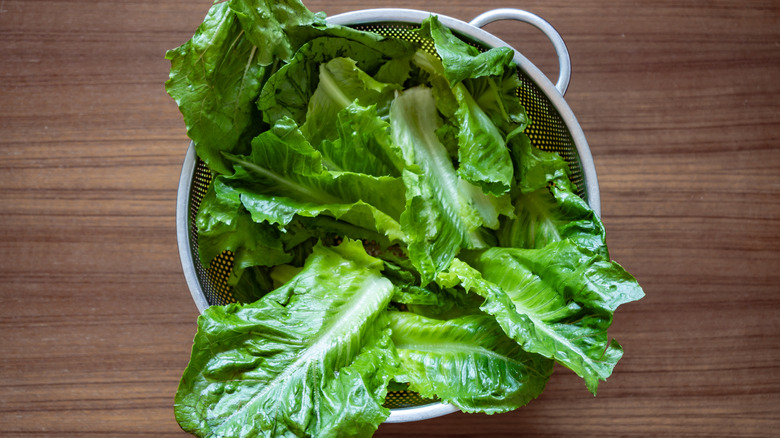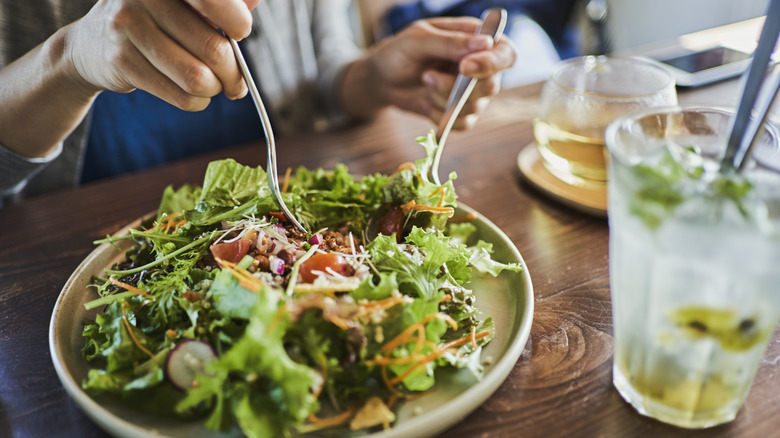The One Step You Might Be Missing When Washing Lettuce
When it comes to washing fruits and vegetables, steps like starting with a sanitized surface and always cleaning produce before cutting it can spare you from a nasty bout of food-borne illness. If lettuce, spinach, kale, or any other leafy green vegetable will be making an appearance at your dinner table, you can take an additional step to thoroughly deep clean your produce. While washing vegetables under running water is important for removing potentially hazardous substances such as pesticide residues and dirt, introducing white vinegar into your cleaning process is effective in mitigating bacterial risks.
Along with deodorizing fabrics and ensuring streak-free glass when cleaning windows in your home, washing fruits and vegetables is just one of many interesting ways to use distilled white vinegar. In this case, you can create a food-safe cleaning solution for your greens by combining a ½ cup of distilled white vinegar with 1 cup of water and dunking the lettuce in the solution. To prevent your lettuce from taking on the vinegar's tangy flavor, be sure to rinse it thoroughly after cleaning. And because no one enjoys eating watery lettuce, simply dry the leaves with a clean paper towel before serving.
Why white vinegar is an effective cleaning agent
Whether used to top burgers and sandwiches or serving as a foundation for a healthy salad, leafy vegetables like lettuce must be properly cleaned as a crucial aspect of meal preparation. You may find this surprising, but you're actually more likely to get food poisoning from vegetables than meat. In particular, raw lettuce and other leafy greens can harbor some nasty germs, including listeria and E. coli. The best way to avoid foodborne illness is to thoroughly cook all your foods, including veggies, but properly washing produce can also effectively lower your chances of becoming ill.
Using white vinegar to clean lettuce for salads and other raw preparations can protect you, thanks to its antimicrobial properties. White vinegar is effective against pathogens like listeria, E. coli, and salmonella. Despite its benefits as an antibacterial agent, it's worth noting that white vinegar is not as effective against viruses (which is an important consideration for people who use it for home cleaning and disinfection).

